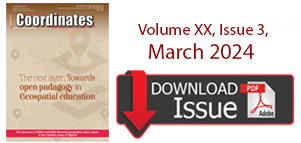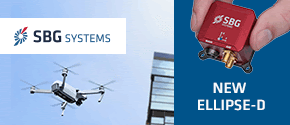| Perspective | |
Voices of future
George Cho, Adam Yau, Chris Goodall, Deok Won Lim, Hedeki Yamada, Karla Edwarda, Malambo Moonga Lonesome, Ruzinoor Che Mat, Sheelan Sh.Vaez, Simone Savasta, Suddhasheel Ghosh Susham Biswas, Thilantha Lakmal Dammalage, Xiaofan LiA competitive advantage in career
|
|||||||||||||||||||||||||||||||||||||||||||||||||
| The Department of Land Surveying and Geo-Informatics of the Hong Kong Polytechnic University is the only academic unit that provides geomatics education, training and research in Hong Kong. Traditionally, its programme has been specialized in Land Surveying and Geo-Information Technology, which has satisfied the requirements of Hong Kong and overseas professional bodies.
During my three-year undergraduate study, I learnt a variety of things ranging from theories to applications and from practical techniques to sophisticated technology, developing myself towards a professional. The integration of concepts subjects and variegated applications, such as satellite orbit determination, location-based services (LBS), and natural hazards monitoring has always enlightened me, giving me useful ideas about research topics and further sustainable development. Our Chief Executive of the HKSAR Government announced in his 2007- 08 Policy Address the undertaking of 10 major infrastructure projects in the coming years. A total of US$32 billion in total expenditure will be committed and around 250,000 new jobs will be created in related industries. The policy anticipates a signifi cant demand for geomatics professionals in the near future. Furthermore, due to advances in computer technology and the improvement of spatial data handling algorithms, the number of GIS users in other fi elds including Logistics, Intelligent Transport Systems, Environmental Studies and Urban Planning has increased dramatically over recent years. I am confi dent that our graduate will have a competitive advantage in their career development. Economic crisis will lead to innovation
The GNSS education is not a simple “science per se”: it is interdisciplinary and it can be extremely rich of interactions with different private companies. The specialization in GNSS/Geomatics topics might be today the right answer for a young student in this so critical world-wide period. I hope economical crisis would lead to a burst for a new innovation rush that rewards the more productive sectors for the medium and short time market period. University masters or Ph. D. programs focused on the localization/navigation field introduce to a very active scientifi c community, both for the basic research and for the R&D areas. Obviously, our future strictly depends on the interest of small medium enterprises in investment for new services and products ICT oriented. Nevertheless, the acquisition of personal skills on the navigation fi eld can create competitive profi les for production and management of innovative navigation-oriented applications, in a world-wide market that today reach out from the USA to the Australia via China and India. Among the topics in Satellite Navigation I had the chance to face several interesting opportunity: the Galileo advent and in particular its Safety of Life services, will contribute to the development of applications focused on security aspects and on certifi cation of the GNSS signal. The fully-software migration from traditional hardware technologies represents one of the major fascinating challenge of the last years, assuring more fl exibility, more system control and easier integration for embedded applications. This will integrate dedicated software for the quality signal monitoring, for example for interference detection and mitigation, assuring reliability for the future GNSS based services. The challenge is to increase the accuracy
I am a Chinese student studying GNSS at University of Colorado at Boulder. GNSS caught my eyes initially through its application in car navigation system. Believing that the civilian applications of GNSS will have promising future, I started my research journey of GNSS in Japan and now continue it in US. An endless source of discovery
From my perspective, as a PhD student planning to fi nish in less than a month, the Geomatics realm goes far beyond individual technologies, such as GNSS. There are many different fi elds such as geodesy, mapping/ surveying, positioning & location, atmospheric study etc. Graduates need to “market” themselves strategically
I have been a student and instructor in the field of Geomatics/GNSS for over 15 years and I readily admit I am a certified geospatial data junkie! I specialize in Geodesy and GPS; the former having been substantially revolutionized over the last 2 decades by the latter. Consider, for example, that Geodesy is defined as the science of measuring both the shape and the gravity field of the earth. However, because of GPS, determination of the Earth’s shape is less difficult than it used to be. Plus, with the increasing numbers of orbiting satellites, gravity field determination is also morphing. The inevitable result? An implicit redefinition of geodesy and the role of the geodesist. This is but one example of an area of Geomatics that is changing the face of the profession at an amazing rate and placing a greater demand upon us as students to stay relevant. |
|||||||||||||||||||||||||||||||||||||||||||||||||

















 (25 votes, average: 4.72 out of 5)
(25 votes, average: 4.72 out of 5)



Leave your response!